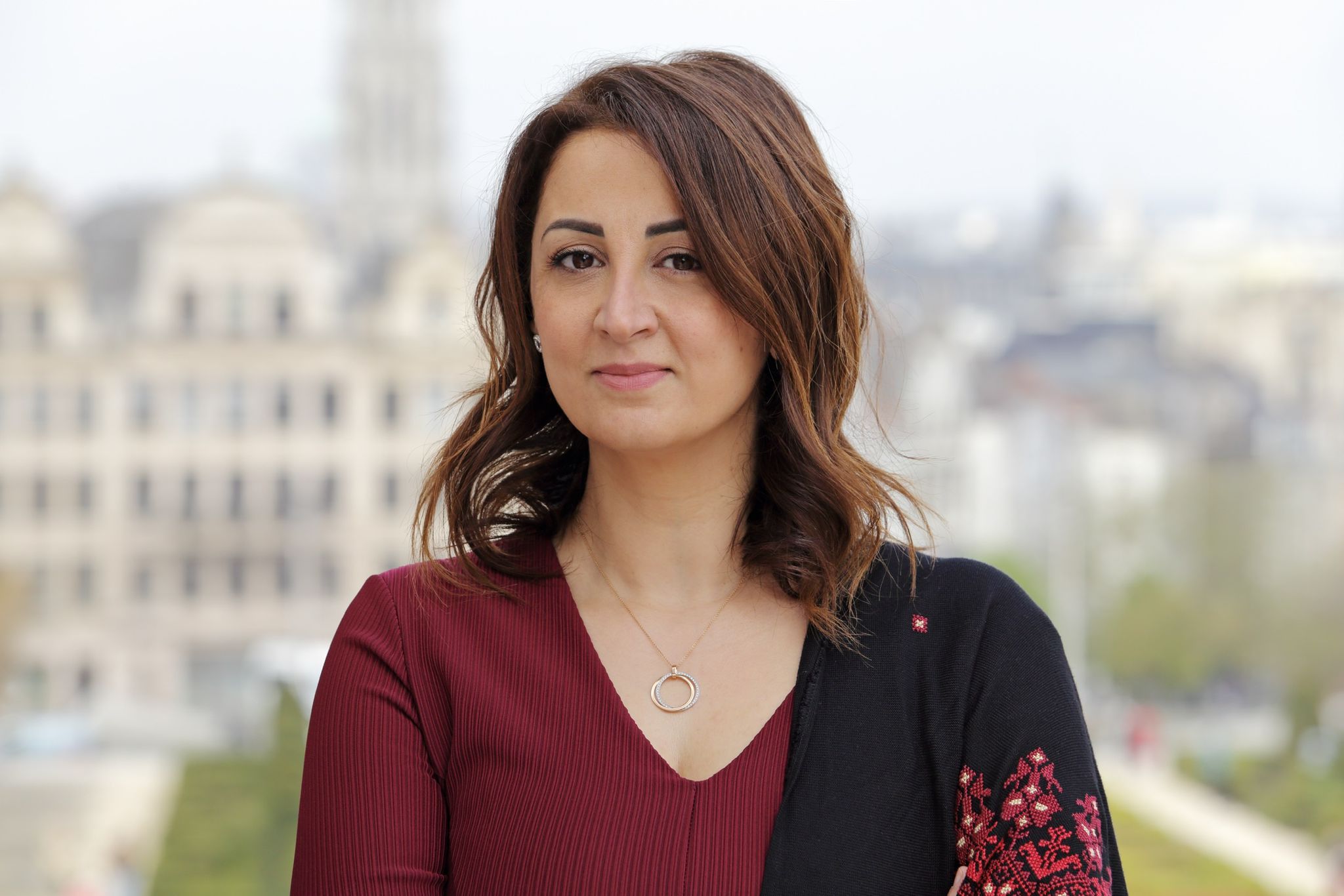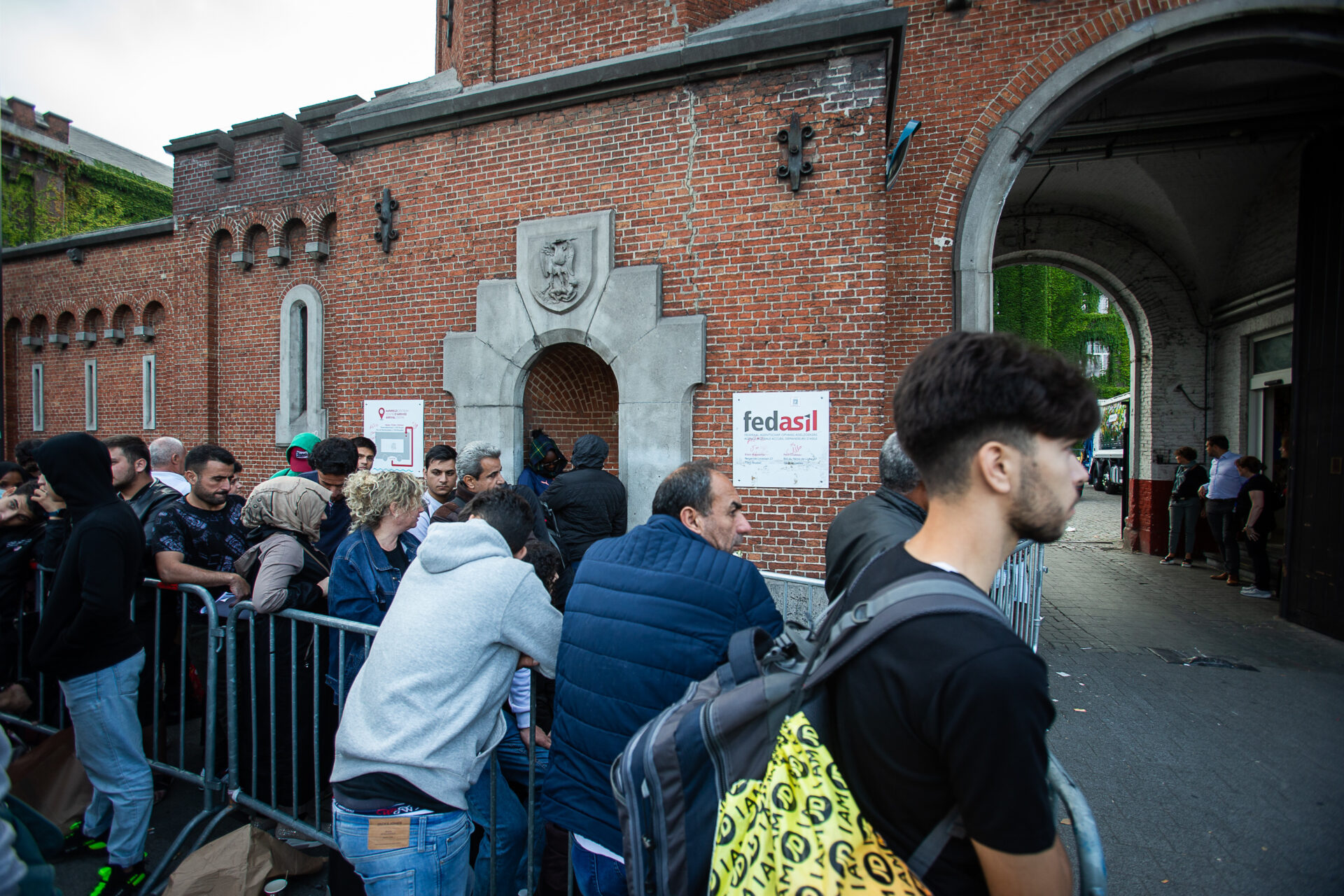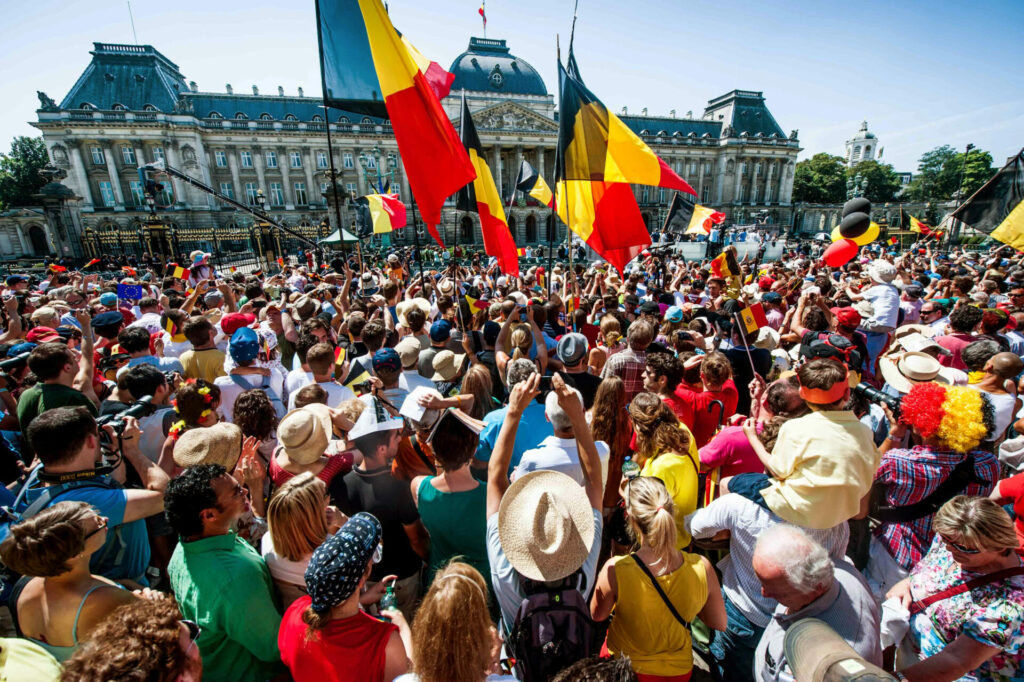Belgium's National Day won't only be celebrated by people born in the country – thousands of "new" Belgians will also take to the streets bearing the flag to celebrate their adopted country. This includes Palestinian-born Leila Wafi, who came to Belgium 20 years ago for her studies and has since attained nationality, raised her children, and now assists new arrivals.
Wafi arrived in Belgium in 2004 to study for a master's degree. She was schooled in French and looked to French-speaking countries to continue her studies. She considered Switzerland and France but secured a scholarship from a Brussels university.
"I ended up here completely by chance," Wafi told The Brussels Times. "The plan was to come to Brussels for two years to do a Master's in political sociology, to then continue my professional career in Palestine." But in the two years she lived here the situation in her home country deteriorated dramatically.
"This is when I decided I had to apply for recognition as a refugee in Belgium. I've been here ever since."
Adopting Belgian habits
While a permanent move to Belgium wasn't a long-held plan, both Wafi and her husband feel lucky to have ended up here. "We've never regretted staying. We have three sons who were born here and are Belgian."
Two decades after first setting foot in the country, Wafi proudly asserts her Belgian identity. "I've lived in Belgium for longer than I've lived in my country of origin. I think I'd find it hard to live anywhere else now. Even when we go on holiday for two weeks, I get homesick and miss being in Belgium. When the Red Devils play in the World Cup or the Euros, we watch the match with our Belgian flags."
Wafi and her family will be expressing their love for their adopted country on National Day this Sunday. "For us, it is a day of celebration. Our children have grown up with the traditions: we go to the military parade, we watch the military jets fly over the city. It's a day that touches us."

Leila Wafi in Brussels
For Wafi, who was technically a stateless person, the option to become Belgian was life-changing. "It's a 360° change. We can travel to other countries. When we used to fill out official forms, we would never find our nation in the drop-down menu. I've been Belgian for some time now, but still when I go to fill in a form and there's a drop-down menu with nationality options, I'm always so happy I can select Belgium."
Aside from becoming Belgian on paper, she has also adopted many Belgian habits. Upon arrival Wafi was shocked by Belgium's protocols and "social codes" and felt a more structured society than she was used to. "Everything is regulated and organised. When I made Belgian friends at the start, they would tell me to come at an exact time, which in many Middle-Eastern cultures can be interpreted as unwelcoming – we tell visitors to come whenever."
"But I came to understand this was not meant in a hurtful way. Now when I meet up with someone, I give an exact time and place. If the person is a quarter of an hour late and doesn't warn me, I get annoyed. In that sense, I am more Belgian than Palestinian now."
The Belgian way of life has also spurred her to make more time for herself. "In our culture you live for others and put yourself second. Now, I also listen to my brain rather than always acting from the heart. I have learned to find the balance between showing emotions and being flexible on the one hand and being serious on the other."
Not all roses
While being Belgian has brought Wafi and her family many opportunities – both professionally and socially – life here has not always been easy. "When I applied for asylum, I was a student and I knew my worth. But the asylum procedure was still difficult for me. I found it very demeaning and only fought until the end because I had no other choice."
In her experience, Belgium's asylum system stigmatises asylum seekers as incapable or inferior, automatically categorising them as people with money problems who are intellectually deficient and don't know their rights. "When you're someone with a certain academic background it's a crushing process. I systematically challenged against this thought pattern but I had to fight to be heard."
It wasn't so much the duration of the process nor the interviews, but rather the lack of assistance and guidance. "I was lucky enough to go through this process after having time to understand Belgian bureaucracy during my studies. I also spoke French but it still took me a long time to understand the process."
Her experience prompted Wafi to get involved with asylum seekers arriving in Belgium to help them integrate. "For many, the situation is even more stressful and they don't have time to adapt to the workings of Belgian or European society first. They arrive as refugees, enter the asylum system and are swallowed up in it."
Giving back
Together with other Palestinian women who arrived in Belgium to study, Wafi set up and now directs the Palestinian Women's Union, an association that primarily focuses on transmitting Palestinian social and recreational heritage. It organises activities such as Dabkeh (the country's traditional dance) lessons for children, and Palestinian feasts, as well as cooking and embroidery workshops.
"Many Palestinians don't have the opportunity to go back home for holidays. I have children who were born here who have hardly ever been to Palestine. We felt the need to create a small community to pass on this culture."
However, since the first major influx of people fleeing Gaza in 2017, there have been successive waves of Palestinians who arrived in difficult conditions. Many had to leave family members behind and the Palestinian Women's Union realised the urgent need to offer more structural help. "This includes help with paperwork, finding a lawyer, finding accommodation, and getting a diploma equivalent to ensure qualified people can find jobs."
While most people arriving in 2017-2018 were given residency permits relatively smoothly as Belgium relaxed its migration policy for people fleeing Palestine, the procedure became more closed in 2020. "Since October last year, we have seen a major rise in demand people are arriving in total distress and the reception system is blocked. A chaotic situation has arisen and we've also had to adapt."

Dozens of asylum seekers, including unaccompanied minors, waiting at the entrance of the Fedasil registration centre Petit Chateau in Brussels in August 2022. Credit: Belga/ James Arthur Gekiere
For example, the organisation has started providing psychological support – especially to young people who are not provided with the shelter to which they are legally entitled. "But even those who are given shelter are in distress. Many feel helpless for families back home, they can't send them money because they aren't given access to the job market. No solution has been found for these people. They are left to fend for themselves in very complicated conditions."
As a person who migrated to Belgium and has made a life for herself in the country, Wafi laments that the State is not welcoming and assimilating newcomers more efficiently. "There is an added value when non-native Belgians integrate positively. When you come from somewhere else, you take something from the country but you also bring something new to the table. I think Belgium has given me a lot, but I have also given a lot back."

